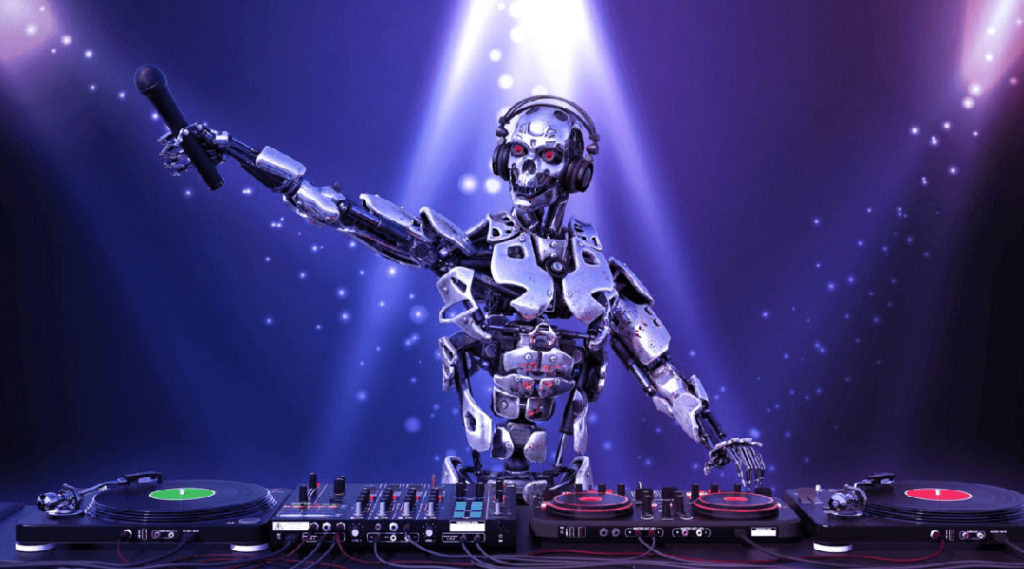Artificial Intelligence (AI) is revolutionizing industries worldwide, and the music industry is no exception. From composition to production, distribution, and even performance, AI’s impact is profound. Musicians, producers, and listeners are all experiencing the shift as AI redefines creativity, efficiency, and accessibility in music. This article explores how AI is transforming the music industry, offering new tools, possibilities, and challenges.
AI in Music Composition
One of the most groundbreaking applications of AI in music is composition. AI-powered tools like OpenAI’s MuseNet and Google’s Magenta can generate original music in various styles, from classical to jazz, rock, and electronic. These tools analyze vast datasets of existing music to learn patterns, structures, and styles, enabling them to create new pieces that are often indistinguishable from human-composed works.
AI composition tools have become valuable collaborators for musicians, offering inspiration, ideas, and even fully developed tracks that can be refined by human artists. This symbiotic relationship between AI and human creativity is pushing the boundaries of what music can be, allowing for innovative cross-genre experiments and new sounds.
Enhancing Music Production
AI is also transforming music production by automating and enhancing various aspects of the process. AI-powered software can assist in mixing and mastering tracks, identifying the optimal levels for instruments and vocals, and applying effects with precision. Companies like LANDR offer AI-based mastering services that deliver professional-quality results at a fraction of the cost and time of traditional methods.
Moreover, AI tools like iZotope’s Neutron and Ozone use machine learning to analyze audio and suggest improvements, making the production process more efficient and accessible to artists of all skill levels. This democratization of music production allows independent artists to compete with major studios, leveling the playing field in the industry.
Personalizing Music Recommendations

AI’s role in the music industry extends beyond creation and production; it also plays a crucial part in how listeners discover new music. Streaming services like Spotify, Apple Music, and YouTube Music use AI algorithms to analyze users’ listening habits and preferences, delivering personalized music recommendations. These algorithms consider factors like genre, tempo, mood, and even time of day to curate playlists tailored to individual tastes.
This level of personalization has transformed how we consume music, making it easier for listeners to discover new artists and genres that align with their preferences. It also helps artists reach audiences who are more likely to appreciate their music, fostering connections that might not have happened in a traditional radio-driven industry.
AI in Live Performances and Virtual Concerts

The rise of AI in the music industry is also evident in live performances and virtual concerts. AI-driven visual and audio effects are enhancing live shows, creating immersive experiences that captivate audiences. For example, AI can generate real-time visualizations that respond to the music, or even control lighting and stage effects based on the rhythm and mood of the performance.
Additionally, AI is enabling new forms of virtual concerts, especially in the wake of the COVID-19 pandemic. Virtual avatars powered by AI can perform in digital environments, offering fans a unique and interactive concert experience. These AI-driven performances are breaking geographical barriers, allowing artists to reach global audiences without the need for physical venues.
Ethical Considerations and Challenges
While AI offers numerous benefits to the music industry, it also raises ethical considerations and challenges. The use of AI in composition and production prompts questions about authorship and originality. If a song is created by an AI, who owns the rights? How should royalties be distributed? These are complex issues that the industry is still grappling with.
Moreover, the rise of AI-generated music could potentially threaten the livelihoods of human musicians and producers, as automated systems become more capable. The industry must find a balance between embracing AI’s potential and preserving the human element that is central to music’s emotional and cultural significance.
Conclusion
AI is undeniably transforming the music industry, offering new tools for creativity, efficiency, and personalization. As AI continues to evolve, it will likely play an even more significant role in shaping the future of music. However, as with any technological advancement, it is essential to navigate the ethical implications and ensure that AI enhances rather than diminishes the artistry and soul of music.

Share via:



